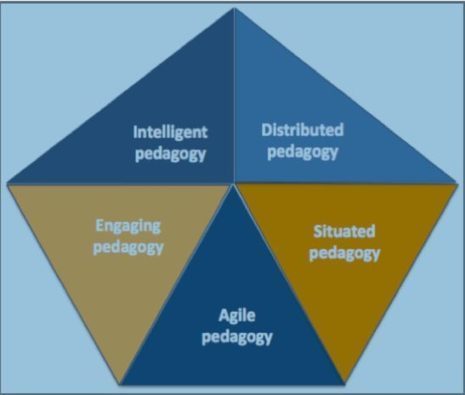Tony Bates:
"This report provides some intriguing suggestions for designers of blended and online learning. As the report states:
The examples of initiatives discussed ….. may be used as inspiration for course teams, departments or institutions to explore innovative practices.
It is clear that universities are going to change, not just because technology is at last beginning to radically shake up how we design courses, but also because the needs of learners are changing. In the end, the value of any new online pedagogy will be judged by how well it helps meets these needs. This report provides many useful ideas and examples that should help stimulate such developments."
Via Peter Mellow



 Your new post is loading...
Your new post is loading...








